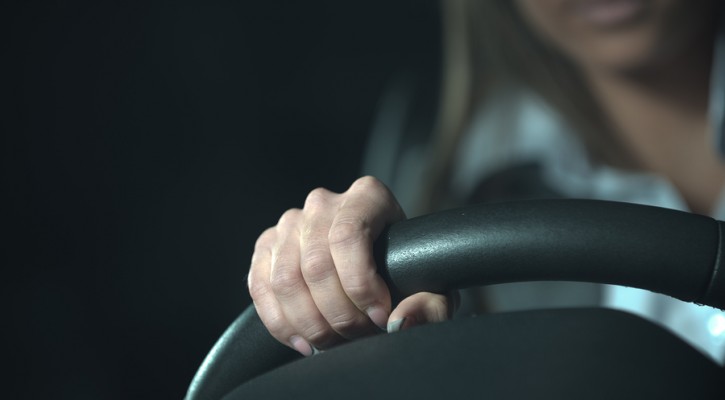Tag Archive: Graduated Driving License Laws

Stiff Penalties For Nighttime Driving Leads To Fewer Teen Crashes
June 18, 2015
Stiffer penalties for violating nighttime driving restrictions can lead to fewer crashes by teen drivers according to a study published in the June 2015 edition of Health Affairs.
Teens lead busy lives and, especially during the school year, tend to not get enough sleep. The tendency to drive drowsy combined with limited visibility and limited driving experience make nighttime driving especially hazardous for teens.
It has long been recognized that the teen crash rate increases at night and most states restrict nighttime driving by teens as part of their Graduated Driver License Laws (GDL). Under the GDL laws, teens are normally restricted from driving without a licensed adult present generally from 11:00 pm until 6:00 am, depending on the state where they are licensed. Depending on the state, those restrictions are generally lifted either after the first year or when the teen reaches the age of 18.
The State of Massachusetts limits nighttime driving by teens between the hours of 12:30 am and 5:30 am. Prior to 2007, violation of this restriction resulted in a $35 fine for a first offense and fines of $75 to $100 for second and subsequent offenses. In 2007, Massachusetts changed the penalties for nighttime driving by teens to a 60 day, 180 day, and one year license suspension depending on the number of previous offenses.
The researchers from Brigham and Women’s Hospital (BWH) compared the crash rate for 16 and 17 year olds to the crash rate for older teens in the one year period prior to enactment of the new law and then compared those rates to crash rates during the first five years after enactment of the law.
The results showed that the rate of crashes involving fatal and incapacitating injury among drivers age 16-17 fell by 40 percent. The overall rate of police reported crashes for teens in the 16-17 age group fell by 19 percent and the nighttime crash rate fell by 29 percent.
According to the senior study author at BWH, “Our data demonstrate that the 2007 revisions to the Massachusetts Junior Operator Law have prevented about 320 fatal and incapacitating injuries and 13,000 motor vehicle crashes among Massachusetts teen drivers over the past eight years.
Read more: Stiffened penalties for nighttime teen driving associated with fewer fatal crashes

Ask The Driving School Instructor: Graduated Driving Laws By State
September 16, 2014
Question: Are Graduated Driving Laws the same in every state?
Answer: Most states have some form of Graduated Driving License (GDL) law but they aren’t all the same.
GDL laws are designed to give new teen drivers more practice in a safer driving environment before granting them full driving privileges. According to the Insurance Institute for Highway Safety (IIHS), the best GDL laws do this by:
- Setting a minimum learner’s permit age of 16.
- Setting a minimum intermediate license age of 17.
- Requiring at least 70 required hours of supervised practice driving.
- A night driving restriction starting at 8 p.m. during the intermediate stage.
- A ban on all teen passengers.
Many states ban other teen passengers for six months to a year because teen passengers can be very distracting and your chances of being involved in a crash are up to four times higher with another teen in the car.
In addition to the above, many states also include a total ban on all cellphone use while driving.
As you probably already realize, your state’s GDL law probably doesn’t include all of these requirements. For instance, in California, the GDL law requires:
- That the teen be at least 15 and one-half years of age before applying for a learner’s permit.
- Both classroom and behind the wheel driver training for anyone under the age of 18 before they can use their learner’s permit to drive on the open road.
- During the Learner’s permit phase, the teen must be accompanied by a licensed driver 25 years of age or older sitting in the front passenger seat.
- Receive at least 50 hours of supervised driving experience (10 at night) before being able to take the behind-the-wheel test.
- Once the teen has passed the behind-the-wheel test, he or she will be given a “Provisional License” allowing them to drive alone.
- During the first 12 months on a provisional license, the teen cannot drive alone between the hours of 11 p.m. and 5 a.m.
- During the first 12 months on a provisional license, the teen cannot transport passengers under 20 years of age.
- Traffic violations during the provisional license period can result in suspension of the license until age 18.
- It is illegal for a minor to use a cell phone in any way while driving other than to call 911.
- Full driving privileges are not given until age 18.
Let’s compare that to Florida’s GDL law. In Florida teen drivers:
- Must be at least 15 years of age to apply for a learner’s permit.
- Must hold their learner’s permit without any traffic violations for one year.
- During the Learner’s permit phase, the teen must be accompanied by a licensed driver 21 years of age or older sitting in the front passenger seat.
- Must receive at least 50 hours (10 at night) of driving instruction before applying for an operator’s permit.
- May not drive between 11 p.m.-6 a.m. for 16 year-olds and 1 a.m.-5 a.m. for 17 year-olds.
That’s it! There are no other restrictions.
As you can see, GDL laws are not the same in every state. However, as a teen, if you travel to another state, you’re subject to that state’s GDL laws so it’s a good idea to check out the GDL laws in the states that you may be traveling to.
No matter what the laws in your state may be, you and your parents can choose to include all of the restrictions recommended by the IIHS in your “teen/parent driving contract”. As a teen, you may not be crazy about that idea but it’s for your own safety. Studies have shown that, in the states with the strictest GDL laws, the teen death rates have gone down significantly.
To compare state GDL laws, visit: Graduated Driving Laws by State
